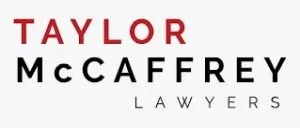- with Senior Company Executives, HR and Inhouse Counsel
- with readers working within the Healthcare industries
In NPR GP Inc. v. Higher Experience Inc., 2025 NUCJ 08, the Nunavut Court of Justice found that a chance encounter in a bank lobby resulted in a legally binding three-year commercial lease renewal for a cannabis dispensary in Iqaluit.
The Background
Higher Experience Inc. had been operating its cannabis store under a one-year lease set to expire in July 2023. As the lease's end approached, the dispensary and its landlord, NPR GP Inc., engaged in multiple discussions—by email and in person—about extending the lease for another three years.
In June 2023, NPR's Commercial Property Manager emailed Higher Experience to confirm key terms for the renewal:
- A three-year term
- The tenant would take over all maintenance responsibilities (plumbing, electrical, HVAC, snow clearing, cleaning)
- The tenant would pay utilities directly, with operating costs (taxes and insurance) billed at the end of each lease year
Notably, there was no mention of needing additional approvals (such as from a regional director), and rent was not discussed—implying it would remain unchanged.
Shortly before the original lease expired, NPR followed up again by email, stating they wanted to confirm the terms "before drafting a lease offer." Still, there was no suggestion that approval was pending or that negotiations were incomplete.
The Bank Lobby Meeting
Just days after the final email exchange, representatives from both parties ran into each other unexpectedly in the lobby of the CIBC bank in Iqaluit.
According to Higher Experience's representative, the terms of the renewal were verbally confirmed during this impromptu conversation:
- Three-year term
- Same base rent
- Tenant responsible for maintenance and utility payments
- All other terms to remain the same
The representative recalled the discussion as follows:
"And then he said, 'The only thing we need is [NPR's Regional Director's] signature.' And I'm like, 'That's just a formality?' He's like, 'Yeah, you're good to go for the three years.' And I'm like, 'Awesome.'"
Justice Alibhai accepted this account and concluded that the agreement was finalized during that conversation, forming a legally binding lease renewal.
Why the Judge Believed It Happened
The judge gave four main reasons for accepting Higher Experience's version of events:
- The terms discussed were consistent with earlier email exchanges.
- NPR did not dispute that the meeting took place.
- NPR's claim that their representative didn't recall the conversation came much later, wasn't under oath, and was made in another person's affidavit—rendering it hearsay and less credible.
- NPR's conduct after the meeting didn't suggest negotiations were ongoing—they didn't object when Higher Experience followed up and allowed the tenant to stay without invoking the lease's overhold provisions.
The Takeaway
Even a brief, casual conversation—like one in a bank lobby—can create a binding contract, particularly when it's backed by a history of discussions and consistent conduct. Courts will look not just at what was said, but also at how both parties behaved, to determine whether a deal was truly made.
The content of this article is intended to provide a general guide to the subject matter. Specialist advice should be sought about your specific circumstances.


